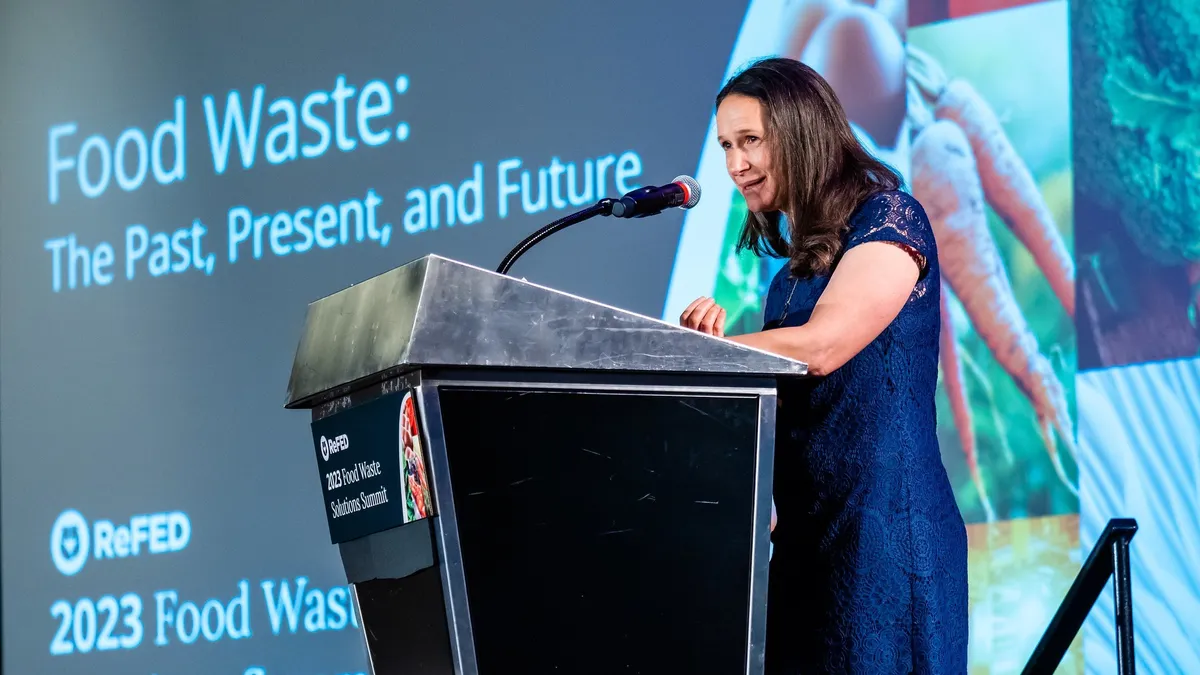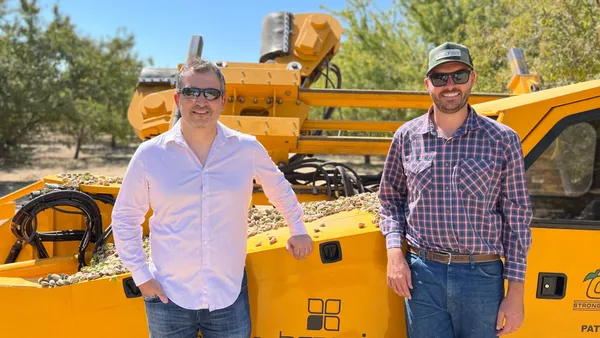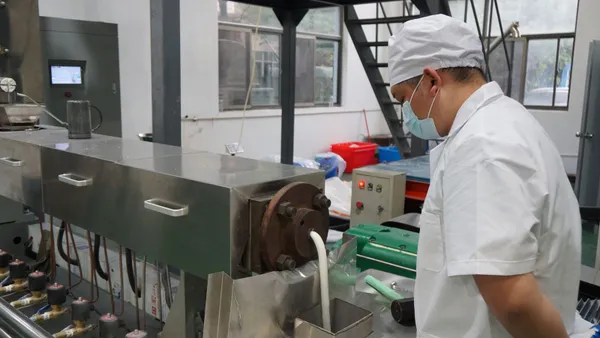Dive Brief:
- Food waste nonprofit ReFED and the World Wildlife Fund announced the U.S. Food Waste Pact on Tuesday. The pact’s signatories include major grocers like Aldi and Walmart as well as other food supply chain participants like Sodexo USA, Aramark and Del Monte Fresh Product.
- The signatories have all agreed to pursue United Nations Sustainable Development Goal 12.3, which seeks to halve food wasted in retail, and reduce losses along food production and supply chains. The partners also plan to share data on efforts to reduce food waste and loss, which the nonprofit plans to anonymize and aggregate to measure progress and identify best practices.
- The pact grows out of the nonprofit’s work to build the Pacific Coast Food Waste Commitment. The group, which has both private and public sector partners spanning the West Coast, will continue its work for the time being, said Dana Gunders, executive director of ReFED.
Dive Insight:
The nonprofits spearheading the pact, assisted by advisory group WRAP, say food waste is a $250 billion opportunity for businesses along the supply chain.
The pact seeks to address a problem that has proven difficult to solve in the U.S. — 38% of food produced nationwide is unsold or uneaten, according to data from ReFED. The U.S. EPA also released a study in November finding that all organics disposed generate more than half of a landfill’s methane emissions when dumped, and food waste contributes to about 6% of the nation’s emissions overall.
“As a global grower of fresh produce, Fresh Del Monte takes food waste and food scarcity seriously. Reducing food waste lowers greenhouse gas emissions and minimizes the waste of valuable resources,” Hans Sauter, chief sustainability officer of Fresh Del Monte, said in a statement. “The expanded U.S Food Waste Pact will allow us to further our own efforts to reduce food waste, and also encourage others to set their own goals, and contribute to the wider progress of the Pact.”
In 2015, the EPA and U.S. Department of Agriculture set a goal to cut food waste in half by 2030, but progress has been limited and difficult to measure, according to the Draft National Strategy for Reducing Food Loss and Waste and Recycling Organics released by the agencies last week.
The strategy noted the agencies’ work with ReFED to improve data collection practices, saying, “Data gaps and limitations make it difficult to understand the extent and consequences of food loss and waste, track progress toward the national goal, and measure success.”
The pact is “designed to go beyond commitment setting to drive meaningful progress on food waste reduction,” according to the release. Gunders said the pact’s priority in its first year will be to get as many signatories on board as possible. Doing so would allow the group to anonymize the data it receives from participants and allow them to benchmark their progress toward the food waste reduction goal, Gunders said.
“My hope is that we find strong representation, we get everyone onboarded, and that we can find one or two quick successes” in the first year, Gunders said.
In addition to waste analytics, the pact’s signatories will also receive human and financial resources to pilot loss and waste reduction pilots, building on a model developed through the Pacific Coast Food Waste Commitment.
That earlier project got its start in 2016 when a coalition of state, provincial, and local governments invited food industry leaders to collaborate on efforts to cut food waste in half by 2030. The commitment has launched a series of case studies in recent years to educate grocers and other companies on the food supply chain on ways to reduce waste. Recent examples include grocers using artificial intelligence to improve order accuracy and Bob’s Red Mill soliciting ideas from employees on how to reduce waste during manufacturing.
Many of the companies involved in the new pact were also involved in the Pacific Coast group. The full list of signatories for the new U.S. Food Waste Pact at launch is Ahold Delhaize USA, ALDI US, Aramark, Compass Group USA, Del Monte Fresh Produce, Lamb Weston, Raley’s, Sodexo US, Walmart and Whole Foods Market.
Gunders said the pact’s “precompetitive” approach allows signatories to discuss best practices and move together toward less wasteful practices, rather than risk an untested strategy on their own. She also hopes the pact can interact with other regional and international organizations to help stitch together solutions across the supply chain and public and private sectors.
“We've developed a model that we think is really starting to work,” Gunders said. “Being able to take that model and expand it nationally so quickly is really exciting.”












